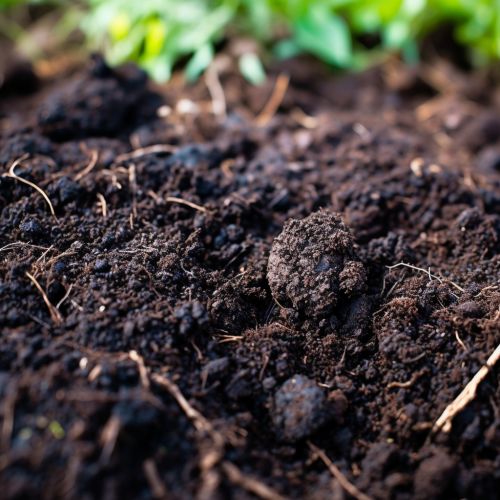The Chemistry of Soil Organic Matter Decomposition
Introduction
Soil organic matter (SOM) decomposition is a complex chemical process that plays a vital role in the global carbon cycle. It involves the breakdown of organic compounds in the soil, leading to the release of nutrients and carbon dioxide. This process is influenced by a variety of factors, including soil properties, climate, and microbial activity. Understanding the chemistry of SOM decomposition is essential for predicting soil fertility and carbon sequestration potential, as well as for managing soil health and sustainability.
Soil Organic Matter (SOM)
Soil organic matter (SOM) is a heterogeneous mixture of organic compounds derived from plant and animal residues, microbial biomass, and humic substances. It is a key component of soil, contributing to its structure, fertility, and water-holding capacity. SOM is primarily composed of carbon, hydrogen, oxygen, nitrogen, and smaller amounts of sulfur and other elements. The exact composition and structure of SOM can vary widely depending on the source material and the degree of decomposition.


Decomposition Process
The decomposition of SOM is a complex process that involves both biological and chemical reactions. It begins with the physical breakdown of organic residues by soil fauna, followed by the biochemical degradation of organic compounds by soil microorganisms. This process releases nutrients and carbon dioxide into the soil and atmosphere, respectively.
Physical Breakdown
The initial stage of SOM decomposition involves the physical breakdown of organic residues by soil fauna such as earthworms, insects, and other invertebrates. This process, known as fragmentation, increases the surface area of the organic material, making it more accessible to microbial attack.
Biochemical Degradation
The biochemical degradation of organic compounds is carried out by a diverse community of soil microorganisms, including bacteria, fungi, and actinomycetes. These microorganisms produce a variety of enzymes that catalyze the breakdown of complex organic compounds into simpler substances. This process is often referred to as mineralization, as it results in the release of mineral nutrients such as nitrogen, phosphorus, and sulfur.
Factors Influencing SOM Decomposition
The rate and extent of SOM decomposition are influenced by a variety of factors, including soil properties, climate, and microbial activity.
Soil Properties
Soil properties such as texture, structure, pH, and nutrient content can significantly influence the decomposition process. For example, soils with a high clay content tend to have slower decomposition rates due to the protective effect of clay particles on organic matter. Similarly, soils with a low pH (acidic soils) can inhibit microbial activity, slowing down the decomposition process.
Climate
Climate factors such as temperature and moisture also play a crucial role in SOM decomposition. Higher temperatures generally increase the rate of decomposition by enhancing microbial activity. However, extremely high temperatures can have a detrimental effect on microbial communities, leading to a decrease in decomposition rates. Similarly, moisture is essential for microbial activity, but excessive moisture can lead to anaerobic conditions, slowing down the decomposition process.
Microbial Activity
The activity and diversity of soil microorganisms are key factors in the decomposition process. Different microorganisms have different abilities to degrade organic compounds, and their activity can be influenced by a variety of factors, including soil properties, climate, and the availability of organic substrates.
Implications of SOM Decomposition
The decomposition of SOM has several important implications for soil health, climate change, and agricultural productivity.
Soil Health
The decomposition of SOM contributes to soil health by releasing nutrients that are essential for plant growth. It also helps to improve soil structure and water-holding capacity, promoting root growth and reducing soil erosion.
Climate Change
SOM decomposition plays a significant role in the global carbon cycle. During decomposition, carbon stored in SOM is released as carbon dioxide, a greenhouse gas that contributes to global warming. Therefore, understanding and managing SOM decomposition is crucial for mitigating climate change.
Agricultural Productivity
The nutrients released during SOM decomposition are essential for plant growth and agricultural productivity. By understanding the factors that influence SOM decomposition, farmers can manage their soils to optimize nutrient availability and improve crop yields.
